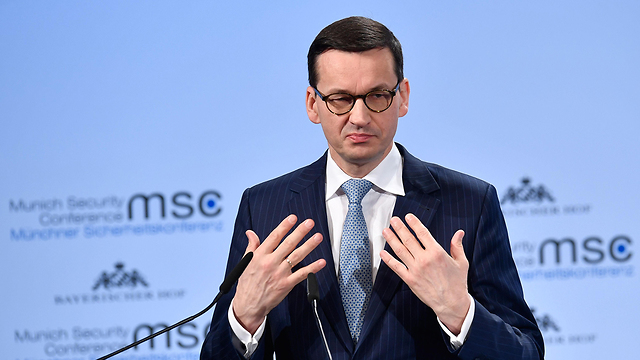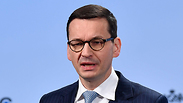
The Holocaust Law: Origins of revisionism in Poland
Analysis: The controversial law and the drastically distorted narratives that have recently emanated from Poland did not appear from nowhere. It is worth reminding ourselves of the historical debates in Poland that enabled its PM to calmly tell an Israeli journalist, whose parents experienced the Nazi occupation, that Jews also perpetrated the Holocaust.
When Polish Prime Minister Mateusz Morawiecki recently said during the Munich Security Conference that there were also "Jewish perpetrators" in the Holocaust, it came as a shock to anyone even slightly acquainted with the gruesome details of the Final Solution. When the Polish government passed the law to criminalize any insinuation that the Holocaust was in any way a crime committed by Poland as a nation, it caused uproar.
But whereas it is a shock to most of us, it is worth acquainting ourselves with the contemporary origins that gave rise to such a pernicious revision of history and that have now been enshrined into law. This law is only the culmination of a school of thought that has been rampant for the best part of two decades.
After the Holocaust, Poland viewed itself, justifiably, as a victim that had been sandwiched between two monstrous tyrants since 1939 - Hitler and Stalin - both of whom had absolutely no regard for their blood.
Its government had fled into exile in London and there had been no homegrown Nazi puppet regime installed akin to the likes of Vidkun Quisling in Norway or Marshal Philippe Pétain in Vichy France.
It was, after all, a German decision to establish the death camps on its soil and crimes against Jews could ostensibly have been attributed by Polish posterity to that which was forced upon them by Berlin: The blackmailing, the draconian collective punishment liberally meted out if orders were not obeyed, the threat of death, torture, incarceration and the like.
Moreover, many Holocaust survivors from Poland or those who witnessed the Poles’ behavior testify to the fact that they knew some risked everything to save Jews. But none, to the author’s knowledge, have said that they lived through a period in which atrocities against Jews could be solely ascribed to German coercion.
Moreover, the Poles had been responsible for some grisly pogroms after the war - the 1946 Kielce pogrom among them - in which Jews, dead and alive, found themselves strewn in the city after the bloodletting.
For Poles, the period - which has yet to expire - of national introspection on what their role as a nation was during the Holocaust, is one which was exposed in a book published in 2001 by Jan T. Gross: “Neighbors: The Destruction of the Jewish Community in Jedwabne.”
By examining an isolated example of when an entire community of some 1,600 Jews was wiped out in the Polish town of Jedwabne on July 10, 1941 by their fellow neighbors who employed the cruelest methods, Gross attempted to highlight the fact that regular citizens did voluntarily, and with notable alacrity, collude with the occupying Nazi regime, with their wanton levels of violence far exceeding those that could perhaps be forgiven on the premise that they were under Nazi duress.
In horrific detail, Gross described how the Jews were beaten, bludgeoned, decapitated, and burned alive, among other things, by regular neighbors.
Zofia Kossak-Szczucka - hardly enamored with Jews herself - wrote down in May 1942 her revulsion at Polish indifference to Jewish suffering. In addition to Ukrainians and Germans, “in many localities, the local Polish population took part as volunteers” in the “monstrous executions.” This is only a scintilla of primary evidence of Polish collaboration in the extermination and abuse of Jews.
The book electrified Poles and demanded that they engage in deeper historical national self-examination. The Polish historian and Polish foreign minister between 1997 and 2000 Bronislaw Geremek, told the historian Abraham Brumberg after its publication:
“When the first reactions to the revelations about Jedwabne appeared, it seemed as if we were in for another of those familiar exercises in self-defense, for another passionate cry that ‘we are not guilty,’ that ‘the world is against us,’ and the like. It took some years for these first waves of indignation to subside - though of course not disappear - and for a serious debate to take shape.”
Since then, the indignation never dissipated as Polish citizens, if not the nation, wrestled with their ancestors’ documented complicity, and sometimes their own for those old enough. Particularly those on the far-right political camp, politicians in Poland attempted to swing back against the perceived onslaught on the nation, by adopting nationalistic sound bites and hurling accusations of falsifying history.
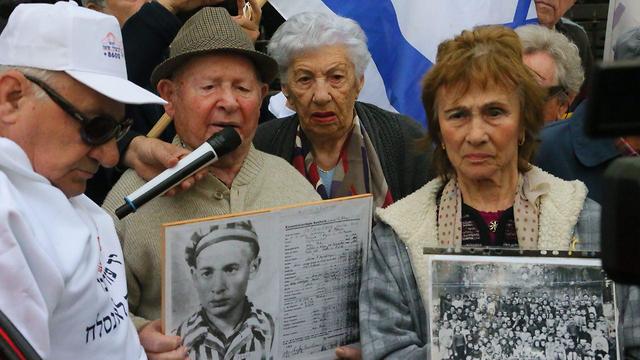
One journalist, Anna Bikont, said that the residents of Jedwabne believed that the Jews themselves committed the horrific crimes against their own people following orders from the Gestapo.
Gross had spewed off, they said, a list of unpatriotic conclusions predicated on mountains of selective evidence. For years thereafter, it was of little importance to the embittered Poles that the Institute of National Memory (IPN) which, sponsored by the government, had been tasked with identifying crimes against the Polish people, announced that while Germans had helped in the massacre, the responsibility for the bloodshed ultimately rested with the Poles.
After the IPN submitted its findings, nationalist parliamentarians such as Antoni Macierewicz slammed the failure to prosecute Nazi and Communist crimes and the propensity to blame Poland.
Cardinal Jozef Glemp from the Second Vatican Council demonstrated his disgust by refusing to attend a memorial for the Jedwabne victims until Jews “apologized to Poles for their sins.” Such statements were indicative of the fact that a residue, at the very least, of anti-Semitism had simply not evaporated in Poland.
In addition to the well-known traditional blood libel sins for which Jews are held responsible, Glemp was also referring to the narrative that Poles who persecuted Jews often did so to take revenge for the latter’s perceived collaboration with the Soviets.
Shocking to us though it may be that the current Polish prime minister could have made such an outrageous accusation and told an Israeli journalist that “there were Polish perpetrators as there were Jewish perpetrators,” it should be clear that this conviction holds true in Poland among larger segments of society due to the ongoing debate. This is difficult for many westerners to comprehend, but the narrative gathered greater momentum after Gross’s book, which is why Morawiecki was able to say it so calmly, without any hint that he understood that the comments were even slightly controversial.
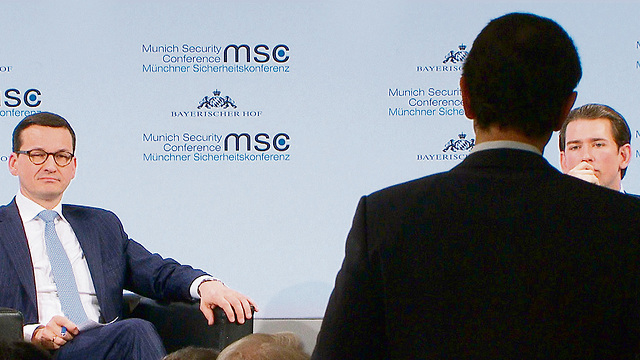
Right-wing elements in Poland are bitter and angry. Indeed, their nation had been simultaneously dismembered by the Soviet Union and Nazi Germany, chewed up by their occupiers, spat out and then gobbled up by the Soviet Union once again.
When Gross’s account of Jedwabne was published, it became a thorn in the nationalists’ side, posing an obstacle to them wiping the slate clean and offering a narrative of a heroic, rather than a monstrous, Poland.
A cursory glance at the phrasing of the law makes abundantly clear that this is an attempt to exonerate the Poles of their crimes and shift the blame to the Ukrainians, who arguably have a far worse record toward Jews during the Holocaust.
“Participating in the extermination of the Jewish population and genocide of citizens of the Second Polish Republic...also constitute a crime committed by Ukrainian nationalists and members of Ukrainian units collaborating with the Third Reich,” the law says.
This conveniently makes no mention of Polish nationalists and members of Polish units collaborating with the Third Reich, such as the Holy Cross Mountains Brigade, to which Prime Minister Morawiecki saw fit to recently pay his respects in Munich despite their collaboration with the Nazis.
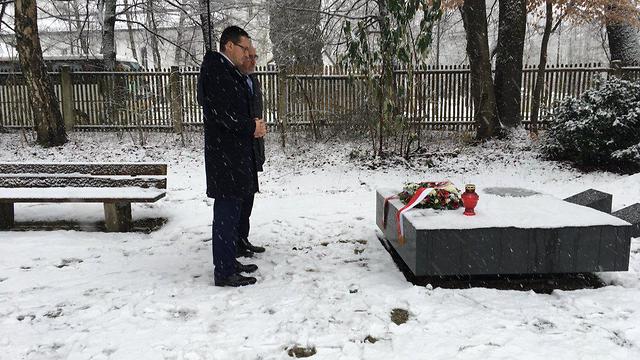
Moreover, contra the Polish government’s claims that the law will not inhibit or prohibit anyone from highlighting the crimes of Polish citizens, the law as it is currently framed contains semantic ambiguities that undoubtedly enable for an elastic legal definition of what it means to accuse the Polish nation.
“Whoever claims publicly and contrary to the facts that the Polish Nation or the Republic of Poland is responsible or co-responsible for Nazi crimes committed by the Third Reich … or whoever grossly diminishes the responsibility of the true perpetrators of the said crimes - shall be liable to a fine or imprisonment for up to 3 years. The sentence shall be made public.”
This means, therefore, that even using phrases such as “Poles helped the Nazis in their murder of Jews” is now open to interpretation. What does “Poles” mean exactly? Can it not be interpreted as a reference to the nation as a whole? Surely, it can. According to the law, will this word, without the inclusion of the word “some,” now constitute a transgression? It is quite conceivable that it will, but time will tell.
Gross wondered how the revelations about Jedwabne will be processed in Poland when it becomes public knowledge. We are now seeing how.










